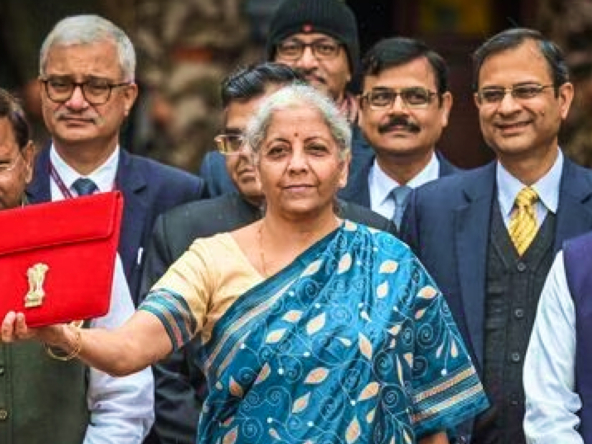Demystifying Real Estate Registration in Mumbai:
In the process of purchasing and selling real estate, real estate registration is a critical stage. This is a requirement under the law to demonstrate ownership and protect purchasers’ and sellers’ interests. It is crucial to comprehend the complexities of real estate registration in a city like Mumbai where the real estate industry is flourishing. We will provide a Guide to the Registration of real estate in Mumbai.
Importance of Registration of Real Estate:
Real estate registration in Mumbai is of crucial importance as it provides legal recognition of ownership, protects the interests of buyers, and establishes legal traceability of transactions. It facilitates asset valuation, provides access to bank loans, and ensures transparency and security of property rights. Real estate registration is essential to prevent litigation and ensure clarity in Mumbai’s real estate sector.
Legal Aspects of Property Registration:
Several laws and rules regulate the registration of real estate in Mumbai. Among the most significant pieces of legislation in India is the 1908 Registration Act, which creates the legal basis for real estate registration. Additionally, detailed rules for the registration of flats and condos are outlined in the Maharashtra Apartment Ownership Act of 1963 and the Maharashtra Condominium Ownership Act of 1970. These regulations offer the legal framework required to ensure the legitimacy and legality of Mumbai’s real estate registration.
Guide to the Real Estate Registration in Mumbai:
To register a property in Mumbai, remember to complete the following steps:
Step-1: Verify that all required papers, including the Bill of Sale, the Agreement of Sale, and the Certificate of Not Sale, are in order.
Step 2: Payment of Stamp Duty – Based on the valuation of the property, determine the relevant stamp duty, and pay it online or at a bank that is authorized to accept it. The state levies a levy known as stamp duty on real estate transactions.
Step 3: Schedule an appointment with the sub-register – Schedule an appointment with the sub-register office that oversees the property. There must be two witnesses, the buyer, and the seller present.
Step 4: Bill of sale execution – At the registered office, the buyer and seller sign the bill of sale in front of witnesses. Ownership is legally transferred from the seller to the buyer through a bill of sale.
Step 5: Payment of Registration charge – Pay the sub-registry the registration charge, which is equal to a portion of the property’s worth.
Step 6: Document Registration – The sub-registry, which confirms the parties’ identities, registers the bill of sale and other pertinent papers.
Step 7: Getting Certified Copies – After registering the papers, get certified copies of them for your records. These copies serve as ownership documentation.
Required Paperwork:
- In Mumbai, the following papers are often needed for real estate registration:
Act of Sale or Sale Agreement:
- Evidence of the buyer’s and seller’s identities, such as a passport, PAN card, or Aadhaar card.
- Evidence of address (such as electricity bills and an Aadhaar card).
Encumbrance Certificate:
- Ownership extract or card.
if necessary, certificates of non-opposition
Stamp Duties and Registration Costs:
Stamp duties and registration fees are required for the registration of a property. Stamp duty rates differ based on the location, kind, and value of the property. Stamp duty rates in Mumbai are relatively high when compared to other cities in India. Registration fees are typically a proportion of the property’s value and pay the administrative costs of registration.
Common Challenges and Pitfalls:
Real estate registration in Mumbai can present its share of challenges. Delays in the registration process, inappropriate documentation, and bureaucratic procedures can cause inconvenience and frustration. It is essential to be well prepared and seek professional assistance to overcome potential obstacles.
Conclusion:
Real estate registration in Mumbai is an important stage in real estate transactions since it provides legal recognition, protection, and transparency. Buyers and sellers may traverse the procedure with confidence by following the step-by-step guidance, ensuring correct documentation, and understanding the legal background. To guarantee a seamless and trouble-free registration process, seek the advice of legal specialists or real estate advisors. Real estate registration in Mumbai may be a smooth procedure with adequate information and planning, assuring the security and transparency of ownership.
FAQs,
1. What is real estate registration?
Ans: The process of properly documenting property transactions with the relevant government body is known as real estate registration. It serves as legal identification and proof of ownership.
2. What are the documents required for real estate registration?
Ans: The sale contract or agreement for sale, identification evidence of the parties involved, proof of address, encumbrance certificate, property card, and any necessary no-objection certifications are all typical papers required for real estate registration.
3. How is stamp duty calculated for property registration?
Ans: Stamp duty is computed depending on the amount, location, and kind of property. Stamp duty rates are determined by the government and are normally a percentage of the property’s worth.



